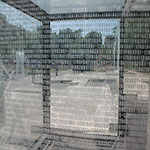Euroacademia Conferences
 Europe Inside-Out: Europe and Europeanness Exposed to Plural Observers (9th Edition) April 24 - 25, 2020
Europe Inside-Out: Europe and Europeanness Exposed to Plural Observers (9th Edition) April 24 - 25, 2020 Identities and Identifications: Politicized Uses of Collective Identities (9th Edition) June 12 - 13, 2020
Identities and Identifications: Politicized Uses of Collective Identities (9th Edition) June 12 - 13, 2020 8th Forum of Critical Studies: Asking Big Questions Again January 24 - 25, 2020
8th Forum of Critical Studies: Asking Big Questions Again January 24 - 25, 2020 Re-Inventing Eastern Europe (7th Edition) December 13 - 14, 2019
Re-Inventing Eastern Europe (7th Edition) December 13 - 14, 2019 The European Union and the Politicization of Europe (8th Edition) October 25 - 26, 2019
The European Union and the Politicization of Europe (8th Edition) October 25 - 26, 2019 Identities and Identifications: Politicized Uses of Collective Identities (8th Edition) June 28 - 29, 2019
Identities and Identifications: Politicized Uses of Collective Identities (8th Edition) June 28 - 29, 2019 The European Union and the Politicization of Europe (7th Edition) January 25 - 26, 2019
The European Union and the Politicization of Europe (7th Edition) January 25 - 26, 2019 7th Forum of Critical Studies: Asking Big Questions Again November 23 - 24, 2018
7th Forum of Critical Studies: Asking Big Questions Again November 23 - 24, 2018 Europe Inside-Out: Europe and Europeanness Exposed to Plural Observers (8th Edition) September 28 - 30, 2018
Europe Inside-Out: Europe and Europeanness Exposed to Plural Observers (8th Edition) September 28 - 30, 2018 Identities and Identifications: Politicized Uses of Collective Identities (7th Edition) June 14 - 15, 2018
Identities and Identifications: Politicized Uses of Collective Identities (7th Edition) June 14 - 15, 2018
Notes on Skopje. Hegemonic and Speculative Urban Narratives
-
-

-
Presentation speakers
- Ivana Sidzimovska, Bauhaus University Weimar, Germany
Abstract:
The paper deals with the ongoing government-funded reconstruction of the Macedonian capital, dubbed “Skopje 2014″. The urban revamp involves erection of numerous government and cultural buildings (in an exclusively “neo-classical” style), (over forty) figurative monuments and equestrian statues of national heroes, bridges and monumental objects (i.e. a Triumphal Arc), reconstruction of facades (in “baroque” style) and other miscellaneous objects, in an attempt to support and provide material illustration of long and continuous Macedonian national narrative, that claims direct descent-line to the ancient hero, Alexander the Great. The paper relates the renewal plan to neoliberal symbolic urban reconstructions, post-communist identity formation and cultural memory issues. For this, David Harvey’s theories on neoliberal urban spaces (‘spatial fix’), Boris Groys’ post-communist theories on ‘belated modernism’ and Pierre Nora’s theories on ‘memory v.s. history’ are used. As Boris Groys notes: ‘eastern European countries need to get rid of the communist past, reinvent and re-contextualize themselves and acquire such an identity that better fits western European norms’, the paper argues, ‘Skopje 2014’ does not only focus on expanding Macedonian national history to antique times, but also on replacing the socialist symbolic of Skopje with new national symbolic, similar to 19th century bourgeois nationalist superstates, thus aligning the country to the western democratic core. Whereas the post-communism situation is explicitly evident in Skopje’s case, it can be observed such practices are likewise typical for the Western European counterpart, embodied, for example, in the reconstruction of the Berliner Stadtschloß. In this vein, the paper contextualises renewal processes in Macedonia beyond the Eastern European borders and as part of wider urban and political discourses.
-
Related Presentations

"The Antichrist Lives in the West": The United States and Western Europe as Russia's Geopolitical "Other"
- Magda Dolinska-Rydzek

















